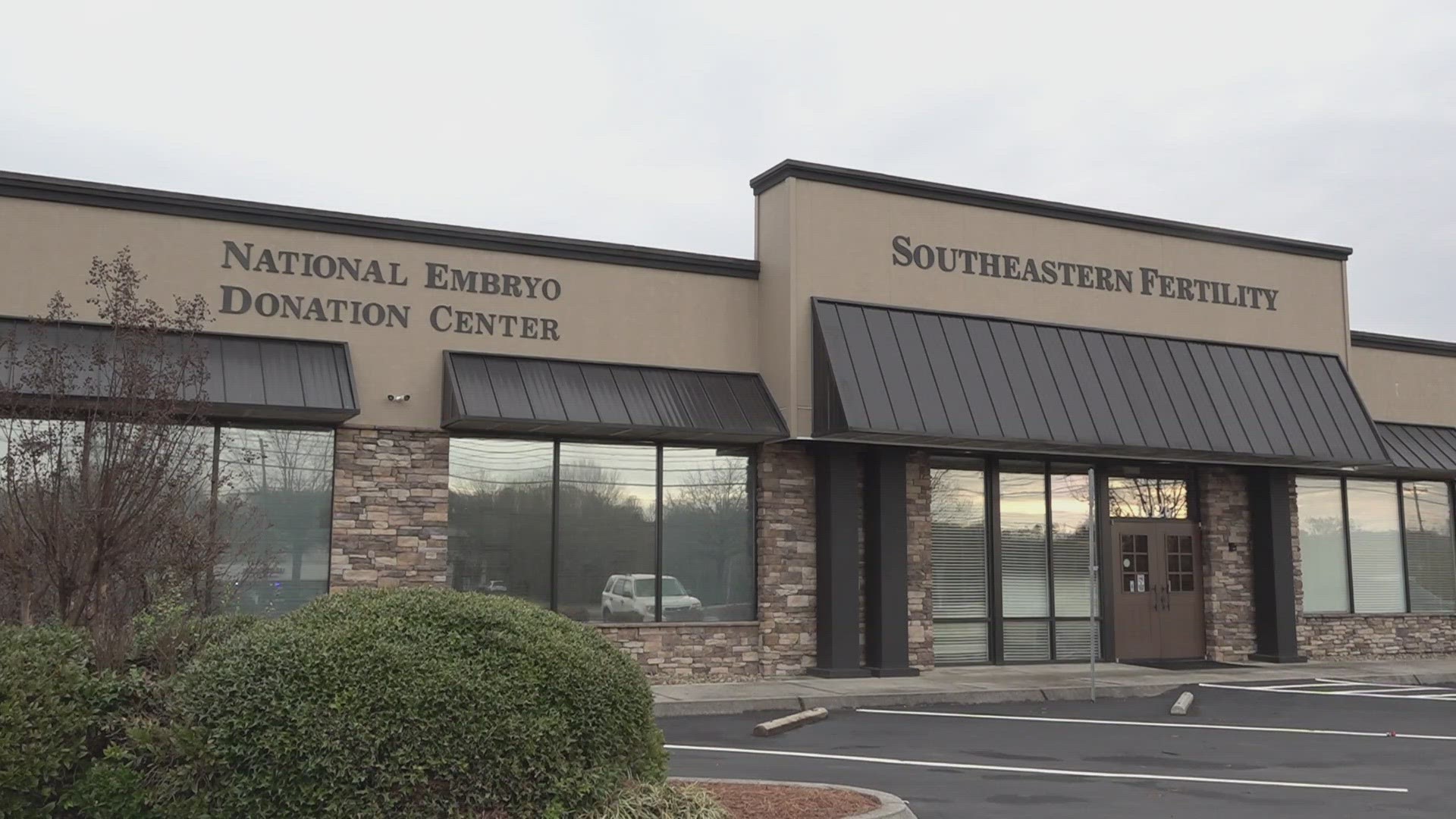NASHVILLE, Tenn. — Democratic lawmakers in Tennessee introduced a bill meant to protect in vitro fertilization treatments after the Alabama Supreme Court decision may have jeopardized access to IVF treatments across that state.
HB 2227 was introduced by Rep. Harold Love Jr. (D - Nashville) and its Senate counterpart, SB 1918, was introduced by Sen. Raumesh Akbari (D - Memphis). The bill would have included language in the state code that specifies the disposing of embryos resulting from fertility treatments is not considered a kind of abortion care.
The bill would have also included language specifying that using contraceptives, including "any device, medication, biological product, or procedure that is intended for use in the prevention of pregnancy, whether specifically intended to prevent pregnancy or for other health needs," would not be considered abortion care.
The bill failed in the House Population Health Subcommittee on March 5. Lawmakers in it previously voted down bills that would have allowed abortion care for pregnancies resulting from rape or incest, and another that would have let pregnant children who are under 13 years old get abortion care.
In Tennessee, people who provide abortion treatments face Class C felony charges except in narrow cases involving ectopic or molar pregnancies, if a pregnant person's life is at risk or if a fetus is not expected to survive the pregnancy. Physicians need to prove in court why they thought abortion care was needed to avoid charges.
The Alabama decision was issued in a pair of wrongful death cases from three couples who had frozen embryos destroyed after an accident at a fertility clinic. It did not explicitly ban IVF treatments but effectively said fertilized embryos have similar rights to children.
As part of IVF treatments, eggs are collected and combined with sperm outside of a person's body. The fertilized egg, called an embryo, is placed inside a uterus. Families hoping to have children often undergo IVF treatment in cases where a person may have fertility issues. As part of the treatment, several embryos are often created and may be stored. In some cases, they may be destroyed.
As a result of the Alabama decision, several clinics providing IVF treatments in the state paused their services to protect patients and providers.
Alabama Attorney General Steve Marshall also “has no intention of using” the Supreme Court decision “as a basis for prosecuting IVF families or providers,” his chief counsel Katherine Robertson said in a statement.

